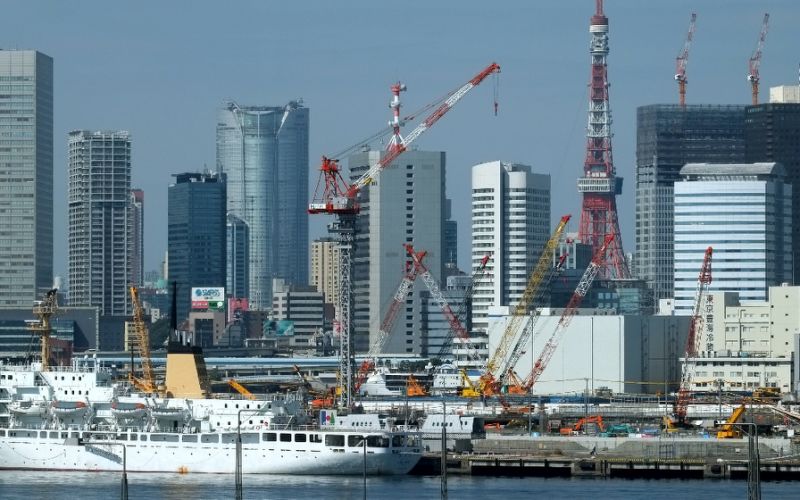Japan's business sentiment weakens
April 2, 2018 | Expert Insights

Japanese business sentiment weakened for the first time in two years in March, suggesting that the strong yen is negatively affecting business confidence despite Japan having a steady economic recovery.
Background
Japan is a sovereign island in Asia. It is situated in the Pacific Ocean and lies off the eastern coast of the Asian mainland and stretches to the East China Sea in the north and China in the southwest. Japan’s economy is a highly developed and market-oriented economy. Japan is the third largest national economy in the world, after the United States and China, in terms of nominal GDP, and the fourth largest national economy in the world, after the United States, China, and India, in terms of purchasing power parity.
In August 2011, Moody's rating cut Japan's long-term sovereign debt rating one step from Aa3 to Aa2 due to the size of the country's deficit and borrowing level. The large budget deficits and government debt since the 2009 global recession and followed by the earthquake and tsunami in March 2011 caused the rating downgrade.
Japan has seen three decades of progressive economic development. Japan overlooked defense spending to enhance economic growth, allowing rapid economic growth commonly known as the Japanese post-war economic miracle. Japan’s Ministry of Economy, Trade and Industry maintained growth rates of 10% in the 1960s, 5% in the 1970s, and 4% in the 1980s. Due to this, Japan was able to establish and maintain itself as the world's second largest economy from 1978 until 2010, after which it was surpassed by the People's Republic of China. In 1990, Japan’s income per capita equaled or surpassed that in most Western countries.
However, in the second half of the 1980s, the rise in prices of stock and real estate caused the economic bubble to the Japanese economy by Bank of Japan. The economic bubble ended abruptly as the Tokyo Stock Exchange crashed in 1990–92 and real estate prices peaked in 1991. Growth in Japan throughout the 1990s remained at 1.5%. It was seen to be slower than growth in other major developed economies, giving rise to the term Lost Decade. Regardless, GDP per capita growth from 2001 to 2010 continued to outpace Europe and the United States.
Analysis
According to a recent survey by Tankan, a quarterly poll of business confidence reported by the Bank of Japan showing the status of the Japanese economy, Japanese business sentiment declined for the first time in two years in March. Business confidence is a key financial measure in Japan and has considerable influence in stock prices and the currency rate. The 'large manufacturers index' component of the Tankan is considered "a leading gauge of economic growth."
An index measuring big manufacturers’ confidence fell by 2 points to plus 24 in March, roughly matching a median market forecast of plus 25. Non-manufacturers’ sentiment worsened by 2 points to plus 23 against a median forecast of plus 24, falling for the first time in six quarters.
Both big manufacturers and non-manufacturers expect business conditions to further weaken in the months ahead reflecting looming uncertainty over the fallout from Trump’s trade policy and a strong yen.
“This should not be taken as turning point for Japan’s economy although sentiment deteriorated slightly,” said Takeshi Minami, chief economist at Norinchukin Research Institute. “Concerns are high over possible retaliation against US tariffs, but the global economy remains in a gradual recovery which is good for Japan’s value-added exports.”
Around 70% of the big manufacturers expect the dollar to move around 109.66 yen on average during the year, which is much weaker than the current levels around 106 yen. If the yen continues to gain, manufacturers may have to cut their positive profit outlooks.
Additionally, labor shortages also affected Japan’s business sentiment, as economic recovery and a diminishing working-age population push the jobless rate to a near 25-year low. A Tankan index that measures capacity constraints showed that companies saw the job market at its tightest since 1991.
Japan’s slow wage growth and the reluctance of companies to hike prices have kept inflation below the Bank of Japan’s 2% target. However, the Tankan showed that more companies were able to pass higher costs on to consumers, which is a hopeful sign for the central bank.
The Tankan’s sentiment indexes derive results by deducting the number of respondents who say conditions are poor from those who say they are good. A positive reading means optimists outnumber pessimists.
Assessment
Our assessment is that a strong yen and ongoing fears of a trade war, triggered by US President Donald Trump’s move to impose tariffs on Chinese goods, could further weaken Japan’s business sentiment and weigh on the outlook, if threats of retaliation emerge. Additionally, we believe Japan’s economic recovery could falter as business confidence remains at a decade-high level and companies plan to increase capital expenditure.








Comments